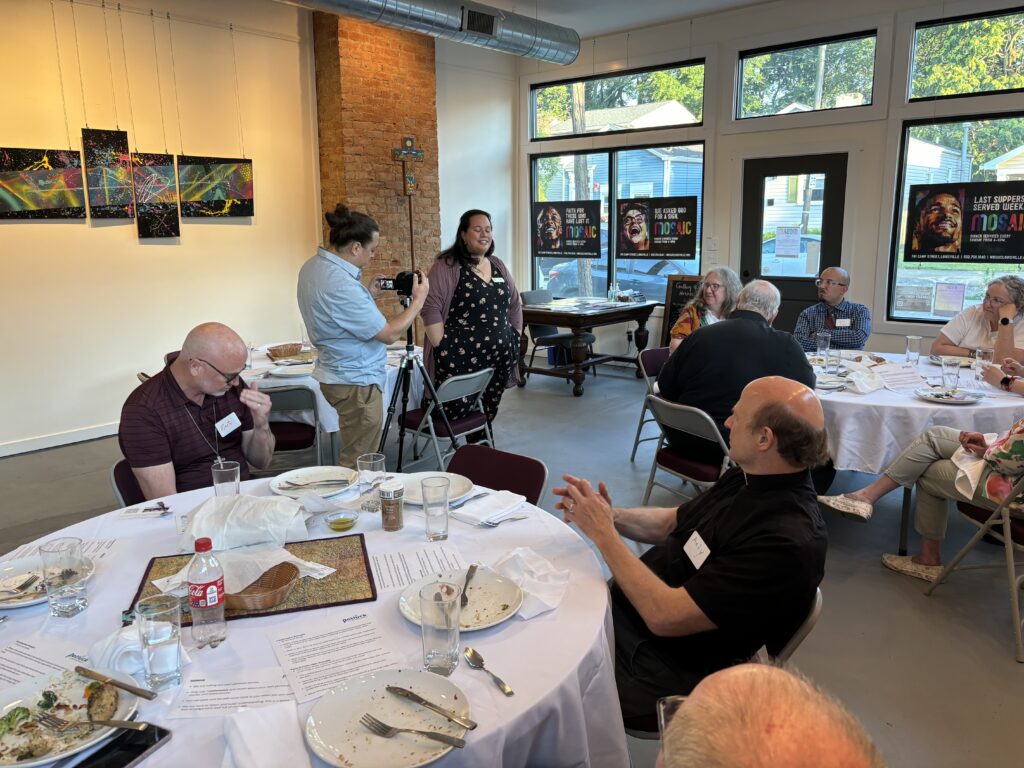
Our team and I recently attended the Episcopal General Convention to promote our Potluck for Democracy, our media, and my book, “Go and Do Likewise.”
Both at the convention and here locally, some have asked if a religious organization should “engage in politics.”
First, this question highlights how the poison of negativity and polarization has infected our collective attitude toward the very functioning of democracy. People seem to feel that the word “democracy” is somehow dirty.
The word “democracy” means “rule or power of everyday people.” When we come to associate it with something dirty or distasteful, we either withdraw from it or seek to replace it with something different.
Second, this shows that people within religious traditions are confused about the separation of church and state. The non-establishment clause in the First Amendment says that the State cannot establish a religion or promote one religion over another. It does not say that people of religious traditions cannot participate in democratic processes. Wisdom communities should not, according to IRS rules, be partisan or enforce their members to a particular party.
But holding a Potluck for Democracy (now Potluck Project) is not really about religious organizations participating in democracy directly. It’s about strengthening the relationships and trust between the demos (the people) that make our common work of democracy possible.
Engaging in a Potluck for Democracy is not a potluck for:
- Partisanship
- Politics
- Policy
The Potluck for Democracy is about connecting the demos (the people) so that we can hold power together, in mutual respect. When we know each other across lines of difference, our anxiety reduces, and we begin to hope that we can live together in cooperation, not competition.
Relationships across lines of difference are our antidote to the poison of negativity.
50% of us are chronically lonely. Many organizations function in isolation from one another. Into these realities, the negative news and dehumanization machine of social media are poisoning us against each other.
The power of wisdom communities right now is to come together and show that we not only want to live together but that we can, in fact, live together.
But it is more than our power. It is also our responsibility. Each of our traditions honors the dignity of all human beings and all life on this planet. In this moment, we must honor the values of our traditions by being together and honoring our humanity – this is the antidote to the poison of polarization in our time.
